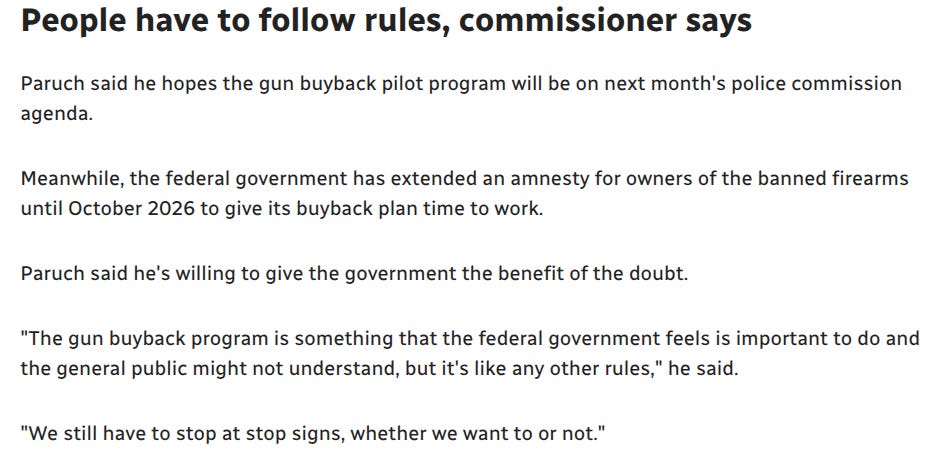
Jesus said to them, “Render to Caesar the things that are Caesar’s, and to God the things that are God’s.” And they marveled at him. Matthew 22:21
Remember covid?
Sometimes it feels like the microbes in my brain have tried to seal up the memories from those days in a cement-lined casket; the kind Italians use when their offers get refused. Other times it feels like there are other microbes — evil, crowbar-wielding ones — who are constantly creeping out of the neural rebar to crack them open again.
They come out of nowhere. The memories, I mean.
There I’ll be, innocently buying a cereal-sized box of Borax at the local Shoppers Drug Mart and *BAM* — a triple-masked cashier is trying to mumble out a sales total at me. There I’ll be, innocently trying to make it through a yellow light and *BAM*, an antique marquee sign outside the Rotary club is exhorting me to “Stay Safe.”
The darkest memory from those days doesn’t have anything to with the “pandemic” itself, but the pandemic of hermeneutical slovenliness, in which various Christian-esque leaders subjected their flocks to blunt-force exegesis of Romans 13. Honest, non-cheeky questions like, Which authorities should I submit to? and, To what extent? were ignored, expelled, or treated with a kind of patronizing charity. “Oh, you’re one of those people . . . shouldn’t you be assembling a mail bomb in a basement somewhere?”
No honest-minded saint ever doubted Caesar was owed something. The question was what belonged to Caesar and what belonged to Christ. It’s the kind of question you don’t want to screw up on a final exam.
And it’s the kind of question still very much in play.
Buyback or bow down
Recently, the feds rolled out a pilot gun buyback program in the hopes of assessing citizens’ appetite for subjugation. Sensibly, they chose an island off the East Coast — an area renowned for its fathomless optimism. Hopes were high. If officials could collect even two-hundred guns, they’d get a small acrylic plaque and a $15 Wendy’s coupon.
The Grand total? 22 guns. More than enough to outfit the Canadian Army, but not exactly a resounding victory.
One would think such an outcome would be enough to shut down the project, right? I mean — clearly this isn’t working. The thing is, “not working” has never stopped the Canadian government before. Upon it being made clear that the priorities of average Canadians do not align with the priorities of government, the state response is predictable: more pressure. Non-compliance to a narrative — not a law, mind you, a narrative, a take — is simply not acceptable in the true north strong and free.
We like our citizens with their elbows up. Waaaaaaay up.
Here’s what you need to know if you ever want to work for the government: whenever someone raises the possibility that a law might be unjust, make sure you treat them like a small, slow child. Make statements like, “the general public may not understand.” Practice until you can say things like “we should give the government the benefit of the doubt” without your pants bursting into flame. Make incomprehensible categories like “what the government feels is important to do.” Be willing to commit tetanus-grade fallacies to justify your premise.
Consider exhibit A: Councillor Glenn Paruch. Here is a man guided by neither truth, nor conviction. Like so many municipal officials, he is a man who knows which side his bread is buttered on. Here’s a man who is as far away from “the general public” as one of Neptune’s more remote moons is from the sun. Here’s a man who, should the state ever put forward a vote to imprison all men with walrus moustaches, would be the first one with his hand in the air. Here’s a man who actually believes that banning firearms flows from the same concern for safety as — wait for it — stop signs.
Yes, those things that keep drivers from smashing into each other.
Hills to die on and other matters
Here it’s worth remembering that a government’s primary mandate is to maintain law and order. Governing authorities are “God’s servants, agents of wrath to bring punishment on the wrongdoer.” Currently, however, and you can look anywhere to find the stats, not only does our government not have any interest in punishing criminals, it seems to have great interest in punishing and murdering its own citizens.
In other words, we have a government that refuses to do what it’s supposed to do, and, instead, does what it’s not supposed to do. If you’d hired a contractor who acted like this, you’d throw him down an old well with carnivorous reptiles in the bottom.
Is “What belongs to Caesar” simply whatever Caesar declares to be his? Our guns? Our homes? Our sons? Our wives? Are we bound by God to offer up whatever the state demands in a basket with shortbread and a lavender bath bomb?
Vindiciae contra tyrannos (1579) was a political tract written by an anonymous Huguenot, and laid the groundwork for what is known as the social contract theory. The social contract theory argues that a ruler’s authority is based on a covenant between himself, God, and his subjects. If the king breaks his part by becoming a tyrant, the people are then justified in resisting him. He is a steward, not an owner, and the people’s well-being is central to the contract. Should the king violate his part of the contract by acting tyrannically, he forfeits his right to rule. In such cases, the people are justified in resisting him, particularly via “lesser magistrates,” who represent the people.
Now it’s true that our political situation in Canada is complicated. Being a constitutional monarchy, we have a technical king, but not a functional king. We elect certain parties, who “rule” in the king’s stead. It would be wrong, however, to imagine that because our political situation has changed, the principle of contract no longer applies. No government, no matter how many votes it received, is ever free to do whatever it wants. Their rule, as all rule, is conditional.
Indeed, the existence of a “social contract” is implicit in Romans 13. The ruler is to bear the sword against evil. That is his job — not to take our swords so we can’t respond to the evil they’re neglecting.
One of many problems facing those of us mired in the subsoil of serfdom, of course, is the lack of opportunities for specific, meaningful resistance. We can vote and, well . . . that’s pretty much it. In the coming days, especially Christian citizens will need to be more creative in this area. And, frankly, more “resisty.” Canadians, for all their boasts about how resilient long winters make us, don’t like not being comfortable.
What I’m trying to say is that arbitrary gun bans present a great opportunity to remind the state that it is not God, that we do not owe it the allegiance of God, and that when it attempts to posture itself as God, it will be met with a wall of tennis balls, overripe fruit, old wicker furniture, etc.
True, a “negative” vision isn’t enough. It isn’t enough to just know what you shouldn’t do. Part of the mission of Dominion, and particularly the Dominion Forum moving forward, is to equip Christians citizens not just how to resist, but how to move forward proactively in faithfulness to Christ.
That being said, resistance assumes there will be actual resisting. It assumes there will be a line, and consequences for crossing it.
If not here — where?




Well said brother, loved that book, not that I finished it but what I read was awesome.
Agreed.
Thank you for 'putting" it that way!
And as always, thanks for the humor!